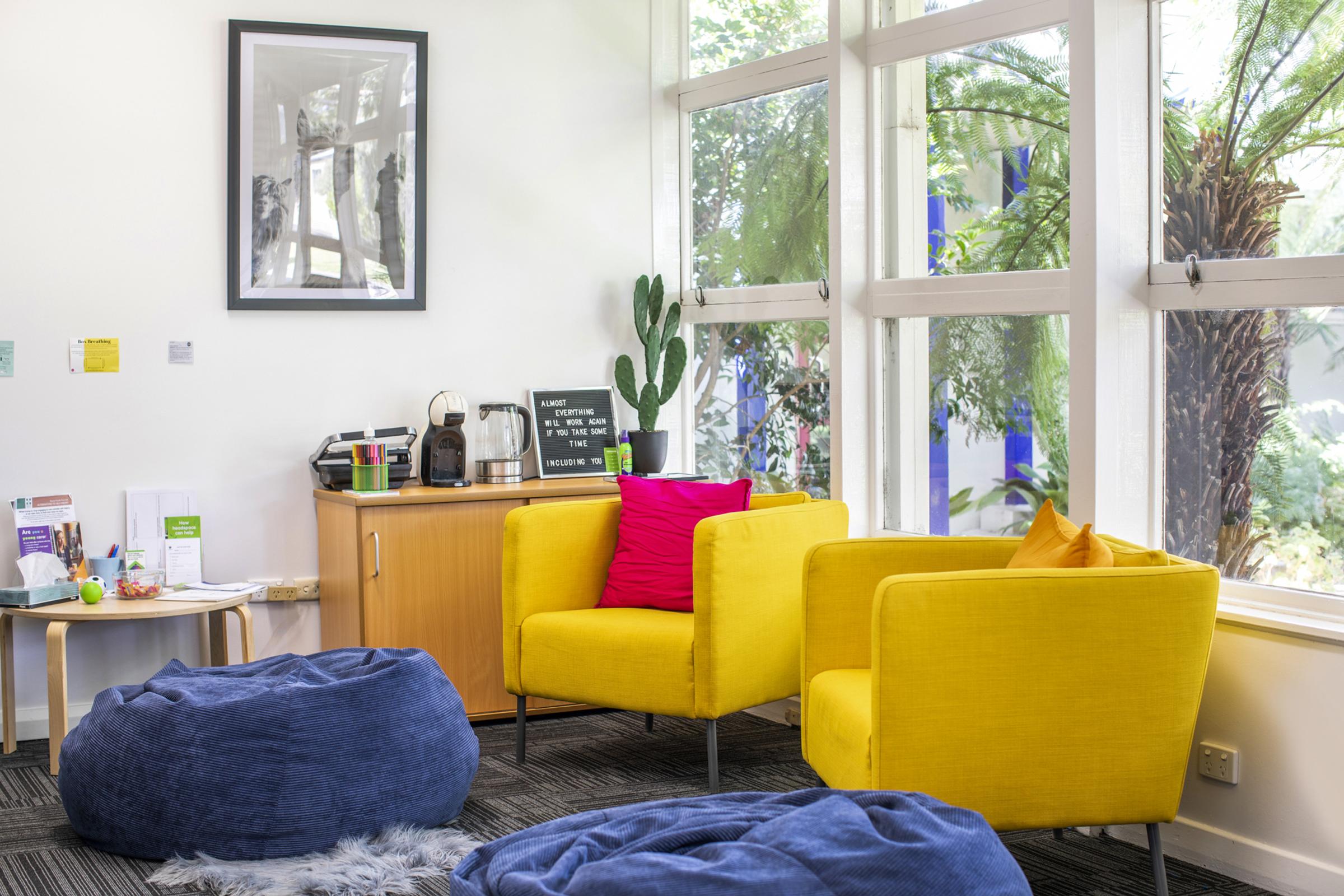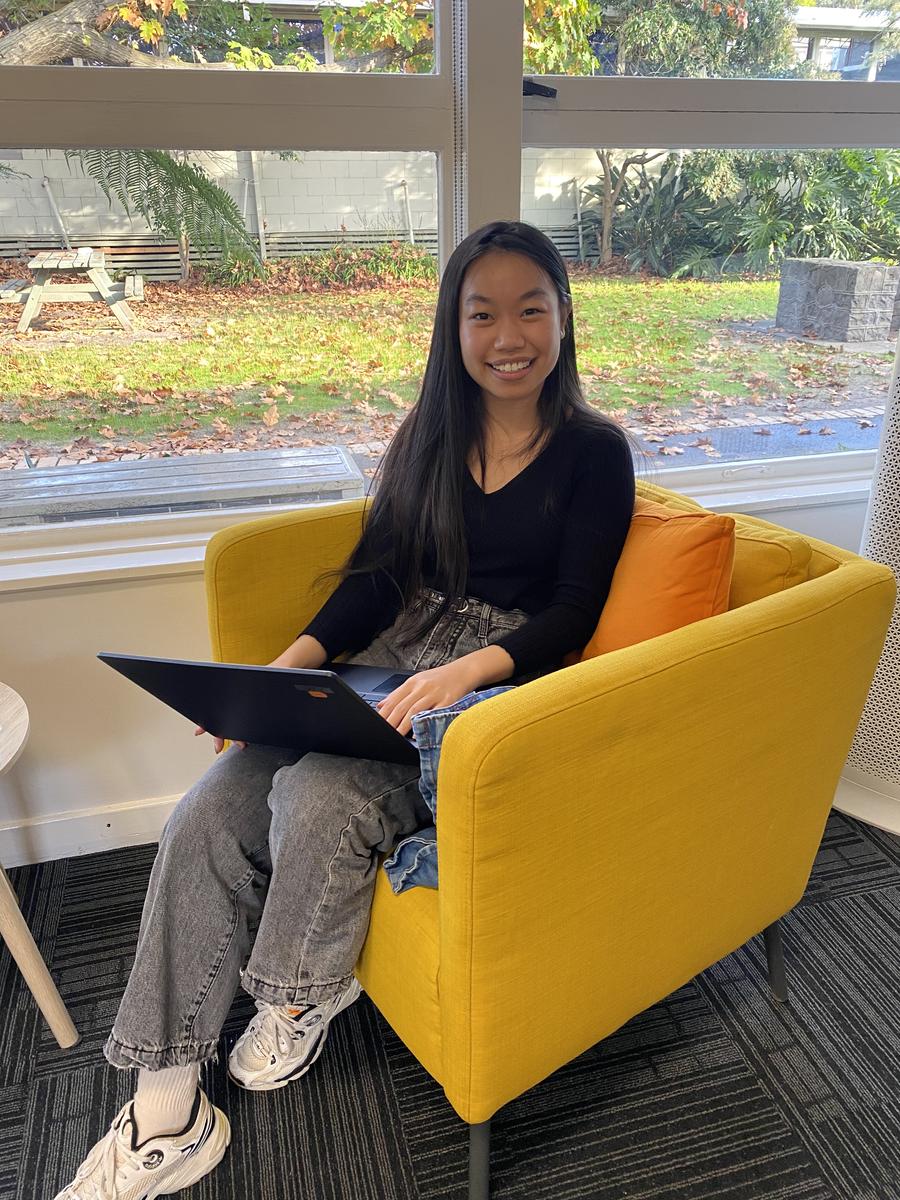Student Wellbeing
The Wellbeing Team: Louise Rogers, Isabella Farrar, Lavainia Cai, Pat Pekin & Suzanne Trease

Student Wellbeing
The Wellbeing Team: Louise Rogers, Isabella Farrar, Lavainia Cai, Pat Pekin & Suzanne Trease


IDAHOBIT (International Day Against Homophobia, Biphobia, Interphobia and Transphobia) day is celebrated to raise awareness about the discrimination and violence faced by individuals who identify as LGBTQIA+ and to promote equal rights and opportunities for them.
The day serves as a reminder to fight against homophobia, biphobia, interphobia and transphobia and to work towards a more inclusive society where everyone can live freely and with dignity, regardless of their sexual orientation or gender identity.
On May 17th, students will wear casual clothes, and are encouraged to wear bright rainbow colours. A gold coin donation will go towards Minus18-an organisation which supports Australian LGBTQIA+ youth.
During lunchtime, there will be food trucks, musical performances, activities and face painting.


The Wellbeing Team would like to extend a very warm welcome Lavinia Cai who has joined us as our newest Student Wellbeing Coordinator at Sandringham College. Lavinia has kindly answered some questions about herself so that we can get to know her a little bit.
Where did you work before you arrived at Sandringham College?
I’ve worked as a school counsellor at Sunbury college and Belle Vue Park primary school during my placements. I have worked as a cross-department patient care coordinator at an international joint-venture private health system called United Family hospital and completed my internship at the psychiatric department at the Third affiliated hospital of Sun Yet-sen University back in China.
Can you tell us about your study background?
I completed my Bachelor of Science degree with a psychology major at Melbourne University and then my honours degree (psychology major) right afterwards at the same university. I then took a one-year gap and completed my Master of Counselling degree with Monash University.
What are you looking forward to at Sandringham College?
I look forward to bringing my skills and expertise into my position and to supporting, empowering and bringing out the best in students at Sandringham college.
What do you like to do in your spare time when you’re not working at Sandringham College?
I’m fond of getting in touch with nature. I spend my leisure time going to different beaches, going on road trips and learning to surf.
Do you have a new skill that you want to learn?
I’d like to upgrade my digital literacy skills such as mastering different software and learning how to code to better adapt to technology changes happening nowadays.
As much of our junior college students may think they are "light years away" from final subject choice selection, it is important to remember that many of these final decisions begin from the Years of 7,8 and 9. It is important to highlight and prepare young people of today for these final subject choices early, as the final years of their education could most likely turn into the skills students carry forwards into their adult lives.
So as a parent, guardian or role model - here are some things to keep in mind when making subject or elective decisions, whilst encouraging the young person to make informed choices and encouraging them to think for themselves, their future and to think outside the box.
What’s happening to teenage brains as they decide?
These decisions are happening as teenagers’ brains are going through significant changes. This includes “pruning” ( also known as removing old neural connections) of the teenage brain where it gets rid of grey matter it isn’t using.
Alongside this, new connections within the brain are created. This means information processing is becoming more efficient. During this period it is important to remember that teenage brains go through rapid changes which can see interests change significantly. So don't be to worried if "it's just a phase", this a natural occurrence in their brain.
How can parents help?
Chat with your child about their interests and passions: it’s understandably challenging for a 13, 14 or 15-year-old to map out their life too far ahead. A good place to start is a comprehensive site such as Your Career. This can be a constructive way to have a look at fields that fall in their line of interest and then discuss further.
Be informed of the options: attend any parent information sessions held by the school to ensure you are up to speed with the choices it is offering. Be prepared to advocate for your child when appropriate to enable them to study subjects they enjoy or show and interest in. Remember there is a great deal more flexibility with pathways today and just because someone says your child “has” to do a subject it doesn’t mean it has to be done now.
See the big picture: what does your child want out of the final years of school? Is it the highest possible university entrance rank? Do they want to start developing workplace or trade skills? Understand there are plenty of options beyond school - whether it be vocational training, an apprenticeship, university via an ATAR or going to university via a non-ATAR pathway or working as soon as possible.
Get input from others: school careers counsellors or the Wellbeing Team can provide excellent advice. If your school has one, encourage your child to make an individual appointment. See if your child can talk to people working in fields they may be interested in, through family friends or within your network.
Be flexible and patient: it’s highly likely your child will change their mind with their subject choices. This is absolutely normal and it’s important for you to listen to and support them as they navigate these challenges. If we are meant to undergo five to seven career changes during our lifetime, then we need to make it safe for our children to do so from the start.
One final thing, it is important to understand and remember that teenagers are unique and will have their own dreams and aspirations and seek creativity and enjoyment out of their career at this age. It is vital at times, that it is important to take a breath and step back from imposing our views on them as adults.
In fostering our young person's sense of ownership and of such choices, we are all contributing to their ability to be lifelong learners.